The French Revolution was a watershed event in world history that lasted from 1789 to 1799. Among other things, it saw the French abolishing feudalism; beheading their monarch; changing their form of government from a monarchy to a republic; forming a constitution based on the principle of equality and freedom; and becoming the first state to grant universal male suffrage. The French Revolution had a great and far-reaching impact that probably transformed the world more than any other revolution. Its repercussions include lessening the importance of religion; rise of Modern Nationalism; spread of Liberalism and igniting the Age of Revolutions. Most importantly the Revolution altered the course of modern history, triggering the global decline of absolute monarchies and replacing them with republics and liberal democracies. Know more about the impact of the French Revolution through its 10 major effects.
#1 End of Bourbon Rule in France
The House of Bourbon is a French Dynasty that had ruled France for over 400 years. Its reign was disrupted by the French Revolution. Monarchy was abolished in France in 1792 and replaced with the Republican form of Government. Although the Bourbon monarchy was restored after the downfall of Napoleon Bonaparte in 1815, it lasted till only 1830 when it was finally overthrown in the July Revolution. Also, during the Revolution, the royal guard of the Bourbon monarchy was replaced by the National Guard, the revolutionary army whose role was to protect the achievements of the French revolution. By the end of 1793, the National Guard comprised of 700, 000 well trained soldiers that protected people and their property.
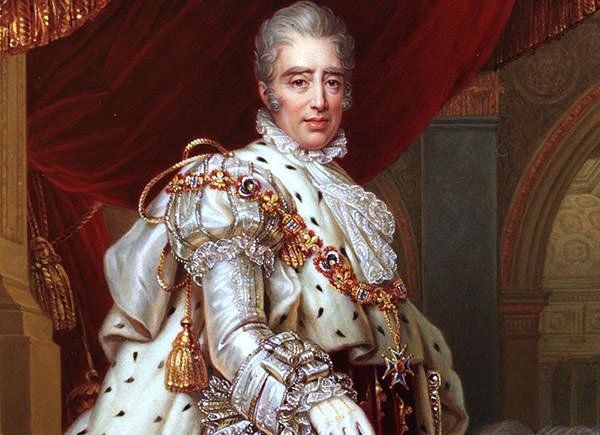
#2 Change in Land Ownership in France
Manorialism was an integral part of feudalism by which peasants were rendered dependent on their land and on their lord. Tithes was one tenth of annual produce or earnings taken as a tax for the support of the church. Both these taxes were abolished during the French Revolution. Two thirds of France was employed in agriculture and abolition of these taxes brought much respite for the peasants. Also, with the breakup of large estates controlled by the Church and the nobility during the Revolution, rural France primarily became a land of small independent farms. It might be said that the revolution bequeathed to the nation “a ruling class of landowners.”
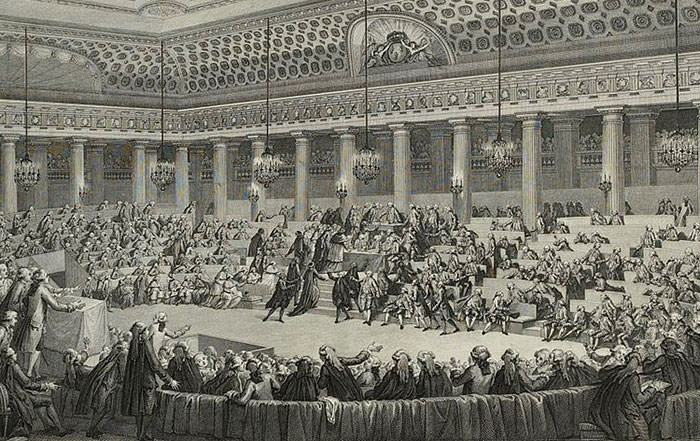
#3 Loss in power of the French Catholic Church
Prior to the French Revolution, Catholicism had been the official religion in France and the French Catholic Church was very powerful. It owned around 10% of the land. It also received tithes, which was one-tenth of the annual earnings of the common people taken as tax to support of the clergy. From this dominant position, the French Catholic Church was almost destroyed during the Revolution. Its priests and nuns were turned out, its leaders executed or exiled, its property controlled by the state and tithes was abolished. The Concordat of 1801, an agreement between Napoleon and the Church, ended this period and established rules for a relationship between the Church and the French State. Though the Concordat restored some of the traditional roles of the Church, it didn’t restore its power, lands or monasteries. Also religious worship could never become as prominent in France as before.
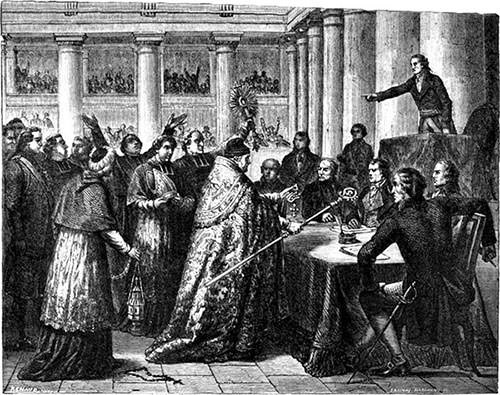
#4 The Birth of Ideologies
An ideology may be defined as a doctrine about the best form of social and political organization. The French Revolution gave birth to ideologies. In fact the term ideology was coined during the Revolution. Prior to the French Revolution, people generally lived in the form of government that had been in place for centuries and that form was monarchy in most places. However, after the French Revolution, no government was accepted as legitimate without justification. The republicans challenged those who favored the monarchy. Even within republicans, some advocated a government directed by the elite while others preferred a more democratic structure. Several ideological alternatives arose due to the French Revolution including nationalism, liberalism, socialism and eventually communism.
#5 The Rise of Modern Nationalism
Nationalism is an ideology that emphasizes loyalty, devotion or allegiance to a nation and places these obligations above other individual or group interests. The French Revolution initiated the movement toward the modern nation-state and played a key role in the birth of nationalism across Europe. As French armies under Napoleon Bonaparte captured territories, the ideology of Nationalism was spread across Europe. The Revolution didn’t only impact French Nationalism but had a profound and long lasting impact on European intellectuals. Due to this, struggle for national liberation became one of the most important themes of 19th and 20th-century European and world politics.
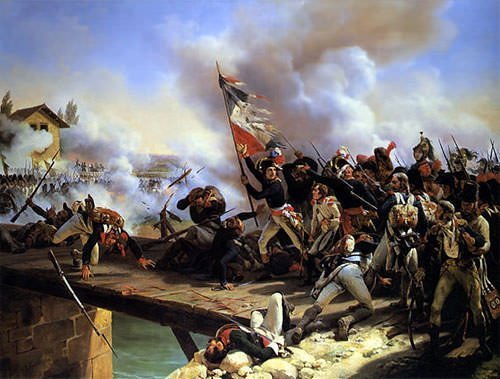
#6 The Spread of Liberalism
Liberalism is a political and moral philosophy based on liberty and equality. During the French Revolution, hereditary aristocracy was overthrown with the slogan “liberty, equality, fraternity” and France became the first state in history to grant universal male suffrage. There were two key events that marked the triumph of liberalism during the Revolution. The first was the abolition of feudalism in France on the night of 4th August 1789. This marked the collapse of feudal and old traditional rights and privileges. The second was the passage of the Declaration of the Rights of Man and of the Citizen in August 1789. The Declaration is regarded as a foundational document of both liberalism and human rights. Due to the success of the French Revolution, liberal governments were established in nations across Europe, South America and North America through the 19th century. Thus the Revolution is considered a defining moment in Liberalism.
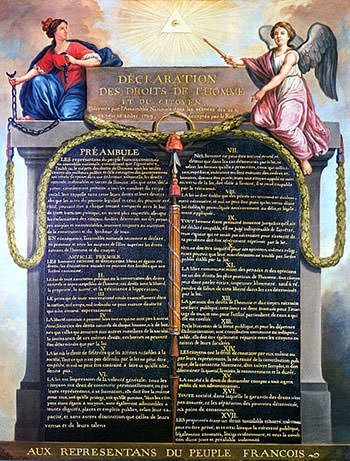
#7 Laying the Groundwork for Communism
The French Revolution didn’t directly produce 19th century ideologies known as Socialism and Communism. However, it did provide an intellectual and social environment in which these ideologies, and their spokesmen, could flourish. The French communist philosophers of the late 18th century not only criticized private property but also called for its abolition and the establishment of a society based on the egalitarian and communal ownership of property. French political agitator and journalist François-Noël Babeuf went to the extent of advocating violent revolutionary action in the name of socialization of wealth. Also, Karl Marx and Friedrich Engels, among the most important communist thinkers, were educated in late 18th and early 19th century when there was widespread revolutionary activity.

#8 Destruction of Oligarchies and Economic Growth in Europe
The French Revolution had a deep impact on neighboring countries. The French Revolutionary armies during the 1790s, and later under Napoleon, invaded and controlled Belgium, the Netherlands, Italy, Switzerland and parts of Germany. The French invasion of these territories removed the legal and economic barriers that had protected the nobility, clergy, guilds and urban oligarchies. Instead the principle of equality before law was established. The Revolution thus destroyed the power of oligarchies and elites that opposed economic change. Evidence suggests that areas that were occupied by the French and that underwent radical institutional reform experienced more rapid urbanization and economic growth, especially after 1850. The arrival of new economic and industrial opportunities in the second half of the 19th century then resulted in more economic growth of Europe.
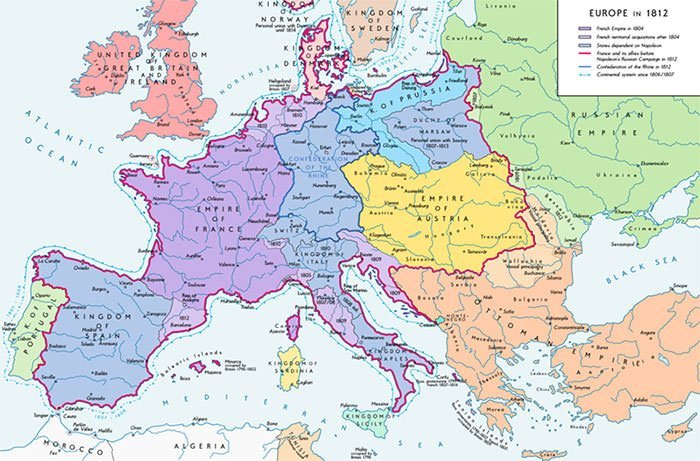
#9 Inspired the Haitian Revolution
At the time of the French Revolution, Haiti was a French colony called Saint Domingue. The French Revolution inspired the slaves in Saint Domingue to revolt forcing French leaders to recognize the full meaning of their revolution. The Haitian Revolution began on 22nd August 1791 as the slaves of Saint Domingue began to kill their masters plunging the colony into civil war. It involved blacks, mulattoes, French, Spanish and British participants. The Haitian Revolution ended in 1804 with the independence of Haiti. It was the only slave uprising that led to the founding of a state which was both free from slavery, and ruled by nonwhites and former captives. The influence of the Haitian Revolution spanned across every location that continued to practice slavery. It is now widely regarded as a defining moment in the history of racism.
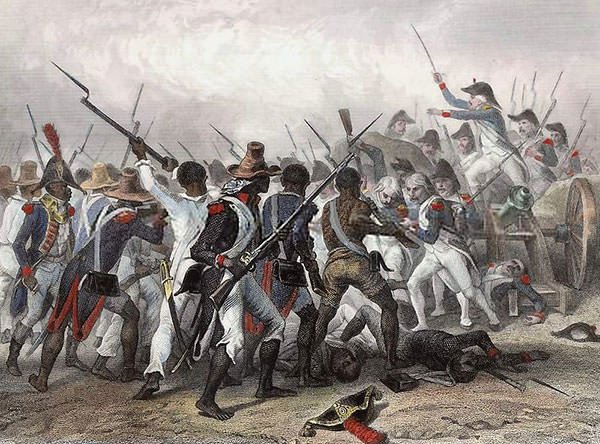
#10 Ushered in the Age of Revolutions
The early 19th century was dominated by the effects of the French Revolution and the Napoleonic Wars. In the decades following the peace of 1815, many European countries were beset by social conflicts as their populations sought to assert their rights against the often autocratic rulers of their states. This ushered in what is known as the Age of Revolutions, a period in which a number of significant revolutionary movements occurred in many parts of Europe and the Americas. These included the Irish Rebellion of 1798; the Haitian Revolution; the First Italian War of Independence; Sicilian revolution of 1848; the 1848 revolutions in Italy; and the independence movements of Spanish and Portuguese colonies in Latin America.

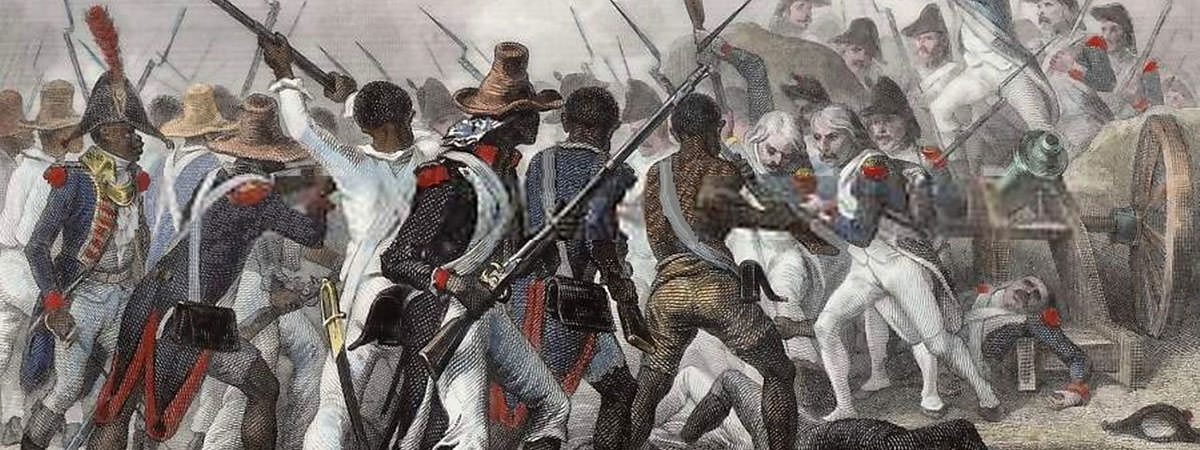
The portrait you captioned as Babeouf is Marshal Soult
Thanks for pointing out the error. The photo has been replaced.
What I was looking for was the effect of the mass slaughter of “intellectuals” had on society. How can killing thousands be considered good? Yes, if you burn down the forrest it grows back greener for awhile. But everything is killed first.
Fell into the French Revolution backwards. I was reading a book about the Anglo-Boer War, which made reference to the French Revolution effect on the balance of power in Southern Africa. We in the United States are a direct beneficiary of the Revolution, when Haiti, the only money making colony in the New World fell, Napoleon offered the Louisiana Territory to President Thomas Jefferson. All Jefferson wanted to buy was New Orleans, to have control of the Mississippi. Napoleon, through in the rest of the territory to help fund his war with the British.
This is very helpful. I have been searching for this for quite some time now here j get my worries resolved. But. I wish you could add to this the negative impacts on children
Happy to help.